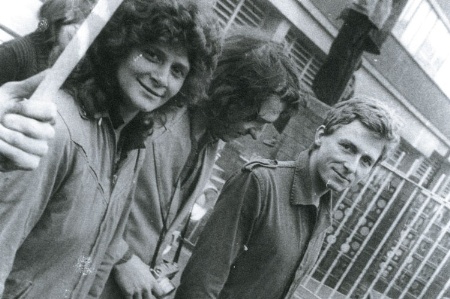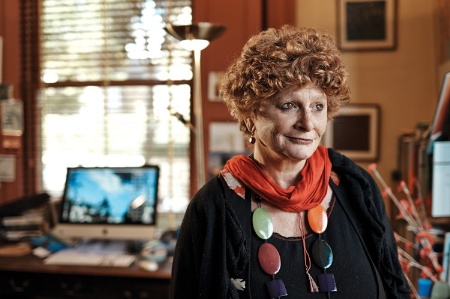Lynne Segal discusses feminist politics and ageing on Woman's Hour, the Guardian and Times Higher Education

"How old am I? Don’t ask; don’t tell. The question frightens me. It is maddening, all the more so for those like me, feminists on the left, approaching our sixth or seventh decade, who like to feel we have spent much of our time trying to combat prejudices on all sides. Yet fears of revealing our age when the years start to race by, speeding up as they mount, are hard to smother. Why write about ageing, when this troubling topic is so daunting, so complicated? My very hesitation, of course, tells me just how much needs to change before we can start to face up to the fearful disparagement of old age, including our own prejudices. Ageing encompasses so much, and yet most people’s thoughts about it embrace so little." – Lynne Segal
Since the second wave of the women’s movement began in the late 1960s and 1970s, feminists have re-examined the myths and stereotypes, the stigmas and truisms of every phase of the life cycle. Yet little has been said or done for older generations of women. In her new book Out of Time: the Pleasures and the Perils of Ageing Lynne Segal - feminist activist, writer and scholar - mixes memoir, literature and polemic to examine the assumptions and taboos that constrain us as we age.

Writing in the Guardian Weekend magazine, Lynne takes us through the key relationships in her life - reflecting on how desire in a woman is viewed as we age. "The humiliations an old woman can expect when she seeks a partner in a straight world mean that it is often better, far better, to act as though she no longer desires at all. I suspect this lies behind many older women, quite unlike men, declaring they're no longer interested in sex. It provides protection from the crippling fear of rejection, or worse, if an older woman acknowledges her erotic desire. Still, after all these years, I refuse to give up on desire, trying to grasp its intricate continuities and discontinuities over a long life". Despite this, Lynne comments that her political beliefs have sustained her as she has got older: "most of the political commitments I made as a young woman still sustain me in old age. Feminism has given me a language for recognising rather than disavowing the vulnerabilities we all experience, whatever our age." Read the whole piece, here.
Lynne was also on Woman's Hour last week discussing the perils and pleasures of ageing with Jenni Murray. She starts the interview with the simple notion that 'ageing well', nowadays, is "not ageing at all, not showing our age". This reveals "deeper fears, so much a part of our culture, that ageing is nothing more than an endless journey of decline. Although we are all living 100 years longer than we were 30 years ago it hasn't changed the attitudes to old age." This interview was repeated in the Woman's Hour weekend highlights - listen in full, here.

Finally, Lynne was interviewed in the Times Higher Education last week about her new book. It is often assumed that ageing, for many, marks a retreat from politics and activism. “For a woman like me coming of age in the Sixties, it was the New Left and feminism that marked who I am and are part of my identity. As you age, one issue is how to remain the person you have always been". You can read the interview - looking at Lynne's illustrious academic career and lifelong body of work - in full, here.
Out of Time: The Pleasures and the Perils of Ageing is now available to buy.
Lynne will be speaking at the Bristol Festival of Ideas on the 27th November, Book and Kitchen in West London on the 28th November and Birkbeck on the 16th December.
